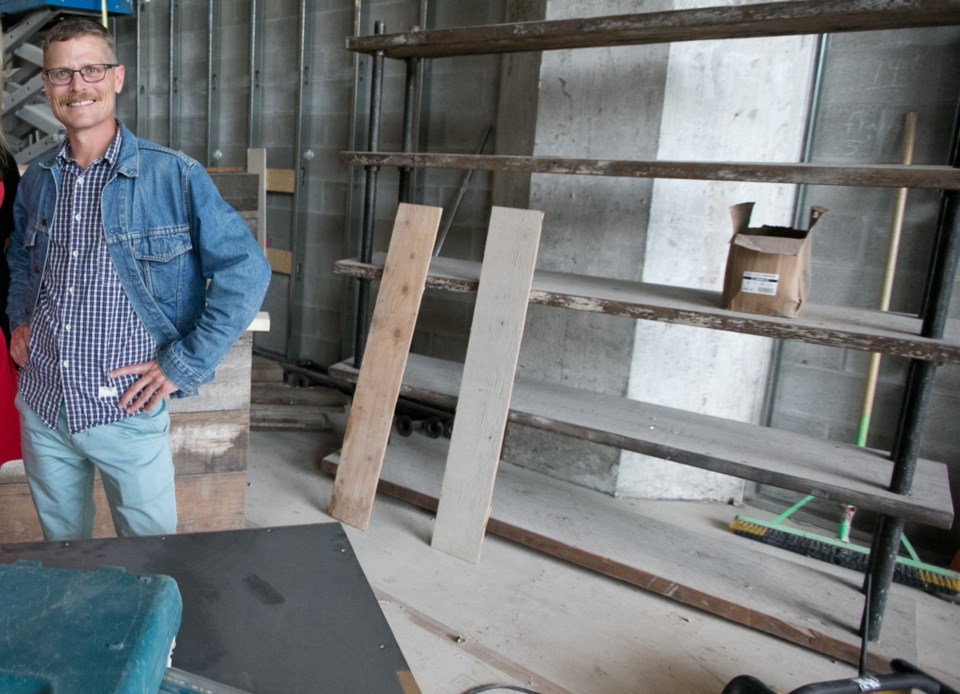Former Victoria Coun. Philippe Lucas is hoping to cash in on the increasing need for quality control in the lucrative cannabis industry.
“What we’ve got right now is a multi-billion-dollar industry. In B.C., the estimate is $6- to $9-billion with virtually no quality control,” said Lucas, a marijuana advocate.
Lucas’s Victoria-based Compassionate Analytics has just launched two new products to test levels of tetrahydrocannabinol (THC) and cannabidiol (CBD) in cannabis.
THC is the active ingredient that provides the psycho-active effect (the high) from marijuana. While it was initially thought that CBD served simply to counter the effects of THC, recent research is showing that it has substantial medicinal qualities. CBD is being seen as promising in the treatment of conditions such as Crohn’s disease, post-traumatic stress disorder and multiple sclerosis.
Lucas said the testing is particularly useful as CBD-rich cannabis would provide that substantive relief without the intoxication associated with high THC strains.
“The nice thing about CBD is it has a lot of the same therapeutic effects as THC — it’s a good pain-reliever. It’s an anti-inflammatory … but it doesn’t have the psychoactive properties of THC,” he said.
Starting April 1, medicinal marijuana users who grow their own plants or designate someone to be their personal grower, or who now buy their cannabis through Ottawa's one approved supplier, will be restricted to buying their pot from a list of approved suppliers.
Lucas believes the tests being marketed by his company will fill a niche even as the landscape for production and use of medical marijuana changes.
“Licensed producers are going to be very motivated to be able to test cannabis both for THC and for CBD to identify those hard-to-find CBD strains,” he said.
“And while this test isn’t meant by any means to replace lab testing, which is going to be required by Health Canada, it is the kind of test where you can get instant results at a much lower cost. So we think it’s going to be very useful in field-testing of cannabis by large-scale, licensed producers.”
Compassionate Analytics, while currently focusing on the Canadian market, is also looking south of the border, where an increasing number of states are legalizing marijuana.
“It’s interesting. When you look at the U.S. market right now, there are certain states like New Jersey that actually limit the amount of THC that’s allowed in medical cannabis. So this is the kind of testing that I think is going to be very useful in things like that, once we gear up to move into the U.S.,” Lucas said.
About 37,000 Canadians are authorized to possess marijuana for medicinal purposes, to help treat a variety of ailments, ranging from cancer to spinal cord injury to attention-deficit disorder. That figure is expected to grow to 450,000 in 10 years. About 25,000 currently grow their own plants for personal use.
Lucas said the tests probably have little application for the recreational marijuana user.
“But I think even the average user might be interested in why they might have a personal preference for some strains over another. This would be a good introductory way to get that information.”
The tests were developed “off the corner of a desk” over the course of the last seven years. The goal was to provide a reliable test that could be used in under 10 minutes and for less than $10, he said.
The colour-metric tests are easy to use and similar to pH tests used in a hot tub or pool.
“I think [these tests] are going to really improve product knowledge for both producers and for distributors and consumers. Certainly, the THC levels are one of the main aspects or one of the things that patients want to know about when they are ingesting cannabis.”



